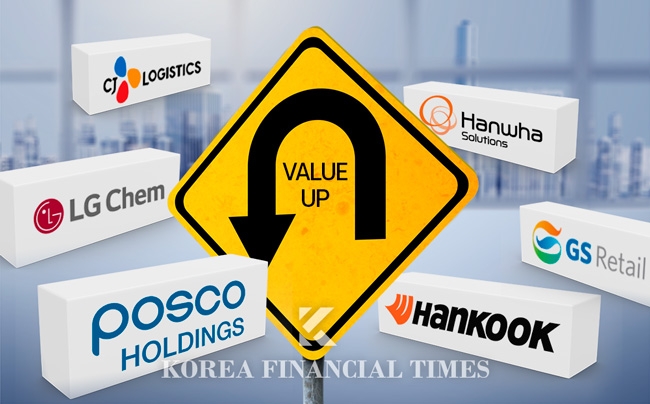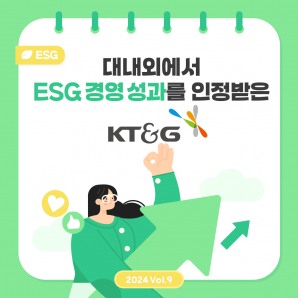
Companies that are "valuation regressors" share a number of commonalities, including poor adaptability to external changes and declining competitiveness. In addition to shaky creditworthiness, low asset utilization efficiency is also holding them back. Asset reallocation is a prerequisite for 'corporate valuation'.
According to Nice Credit Ratings on Feb. 2, the sectors whose ratings and outlooks were upgraded in the first half of this year are automobiles (2 companies), shipbuilding (2 companies), and PPPs (4 companies). On the other hand, the downgrades were made to petrochemicals (7 companies), construction (4 companies), and retail (2 companies).
The economy goes through booms and busts like a clockwork. In this process, companies with strong financial buffers and competitiveness tend to fare well, while those without are subject to a vicious cycle of "credit crunch" followed by "credit crunch".
This reaction is also reflected in the stock market. According to big data platform 'DeepSearch', there are a total of 593 listed companies whose price-to-earnings ratio (PBR) and market capitalization have declined and whose PBR is less than 1x compared to the financial authorities' announcement of the corporate valuation program on January 24th.
To exclude cases where capitalization declines relatively quickly relative to market capitalization, resulting in a higher PBR, we selected companies with both PBR and market capitalization declining simultaneously.
| Korean Companies with Declining Market Cap & PBR | ||||||
| (Based on 24.01.24 vs. 24.07.05 closing price) | (Unit: billion won) | |||||
| Company | PBR | ROE | DTE | Market Cap | ||
| POSCO Holdings | 0.52 | 3.13% | 69.19% | 30,911 | ||
| LG Chem | 0.86 | 5.24% | 89.23% | 24,919 | ||
| Hankook Tire & Technology | 0.57 | 7.88% | 32.54% | 5,370 | ||
| Hanwha Solutions | 0.58 | -1.64% | 171.82% | 4,392 | ||
| LG Uplus | 0.50 | 7.33% | 129.54% | 4,235 | ||
| Hyundai Steel | 0.20 | 2.29% | 80.65% | 3,837 | ||
| KangwonLand | 0.77 | 9.61% | 20.96% | 2,972 | ||
| GS Retail | 0.53 | 0.50% | 126.49% | 2,126 | ||
| CJ Logistics | 0.53 | 6.01% | 131.45% | 2,115 | ||
| Lotte Shopping | 0.19 | 1.55% | 182.79% | 1,777 | ||
| OCI Holdings | 0.46 | 18.15% | 56.14% | 1,665 | ||
| E-Mart | 0.13 | -1.37% | 141.75% | 1,625 | ||
| Daewoo E&C | 0.39 | 13.39% | 176.79% | 1,552 | ||
| Shinsegae | 0.35 | 4.96% | 132.68% | 1,543 | ||
| YOUNGONE | 0.47 | 15.91% | 47.64% | 1,533 | ||
| Hankook & Company | 0.36 | 4.76% | 15.54% | 1,436 | ||
| Dongwon Industries | 0.47 | 9.01% | 146.36% | 1,243 | ||
| DL E&C | 0.27 | 4.27% | 95.94% | 1,229 | ||
| Lotte Fine Chemical | 0.48 | 7.78% | 12.58% | 1,174 | ||
| Seegene | 0.95 | 0.07% | 21.45% | 1,092 | ||
| Source=DeepSearch(Reprocessing) | ||||||
If we exclude holding companies, telecom companies, etc. that are 'perennially undervalued', we can see that the companies are concentrated in the credit risk industry.
This trend is even more pronounced when we zoom in outside the top 10 market capitalizations. E-Mart, Daewoo E&C, Shinsegae, DL E&C, Lotte Fine Chemicals, etc. are also in the credit insecure industry, which is also known as 'value retrogression'.
Among them, companies with a debt-to-equity ratio (total debt/total capital) of more than 100% are Hanwha Solutions, GS Retail, CJ Logistics, Lotte Shopping, E-Mart, Daewoo E&C, and Shinsegae.
Based on ROE and debt-to-equity ratios, the retail sector is the most prominent. The industry is expected to intensify as the domestic and international e-commerce offensive continues. High household debt levels and interest burdens are likely to weaken spending power, which could further shake creditworthiness.
Even companies with low debt-to-equity ratios are not safe. They can improve profitability by increasing leverage, but finding the right investments is not easy.
These companies may have no choice but to sell back shares and increase dividends to increase shareholder value. This is a way to increase ROE with relatively less capital.
However, this can be risky. For bond investors, a reduction in capital buffers reduces investment appeal. The more a company focuses on returning capital to shareholders, the harder it is to raise funds in the form of bonds. Companies with declining market capitalization and PBR, including POSCO Holdings, are caught in the so-called "value trap.
"Companies need to properly source, deploy, and utilize capital and debt for growth," said a fixed income manager at an asset management firm. "Korean companies have low asset allocation efficiency, and the purpose behind it is group control," he criticized. "As bond investors focus on the quality of capital and profitability, and equity investors focus on growth and return, companies should strategically allocate assets considering both sides of the equation, rather than just paying lip service to 'returning to shareholders,'" he advised
Lee Sungkyu (lsk0603@fntimes.com)






























![‘함안 조씨 가문’ 효성·한타…고배당 진실은? [정답은 TSR]](https://cfnimage.commutil.kr/phpwas/restmb_setimgmake.php?pp=006&w=69&h=45&m=5&simg=2024112421075006266dd55077bc25812315232.jpg&nmt=18)






![미래·삼성·키움·토스증권, 해외주식 수수료 수입 4강 견고 [해외주식 랭킹]](https://cfnimage.commutil.kr/phpwas/restmb_setimgmake.php?pp=006&w=69&h=45&m=5&simg=2024112422033806835dd55077bc25812315232.jpg&nmt=18)














![[카드뉴스] 국립생태원과 함께 환경보호 활동 강화하는 KT&G](https://cfnimage.commutil.kr/phpwas/restmb_setimgmake.php?pp=006&w=298&h=298&m=1&simg=202403221529138957c1c16452b0175114235199_0.png&nmt=18)
![[카드뉴스] 신생아 특례 대출 조건, 한도, 금리, 신청방법 등 총정리...연 1%대, 최대 5억](https://cfnimage.commutil.kr/phpwas/restmb_setimgmake.php?pp=006&w=298&h=298&m=1&simg=20240131105228940de68fcbb35175114235199_0.jpg&nmt=18)
![[카드뉴스] 어닝시즌은 ‘실적발표기간’으로](https://cfnimage.commutil.kr/phpwas/restmb_setimgmake.php?pp=006&w=298&h=298&m=1&simg=202311301105084674de68fcbb35175114235199_0.png&nmt=18)
![[신간] 사모펀드 투자와 경영의 비밀](https://cfnimage.commutil.kr/phpwas/restmb_setimgmake.php?pp=006&w=81&h=123&m=5&simg=2024102809331308730f8caa4a5ce175114235199.jpg&nmt=18)
![[신간]퍼스널브랜딩, 문학에서 길을 찾다](https://cfnimage.commutil.kr/phpwas/restmb_setimgmake.php?pp=006&w=81&h=123&m=5&simg=2024102214123606876f8caa4a5ce175114235199.jpg&nmt=18)
![[서평] 추세 매매의 대가들...추세추종 투자전략의 대가 14인 인터뷰](https://cfnimage.commutil.kr/phpwas/restmb_setimgmake.php?pp=006&w=81&h=123&m=5&simg=2023102410444004986c1c16452b0175114235199.jpg&nmt=18)

![[신간] 김국주 전 제주은행장, ‘나는 시간을 그린다 1·2’ 에세이 출간](https://cfnimage.commutil.kr/phpwas/restmb_setimgmake.php?pp=006&w=81&h=123&m=5&simg=2024111517430908074c1c16452b012411124362.jpg&nmt=18)








